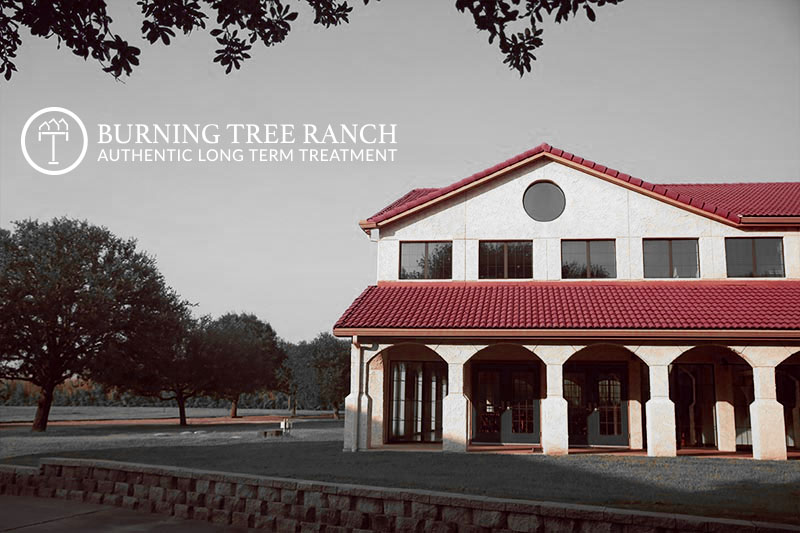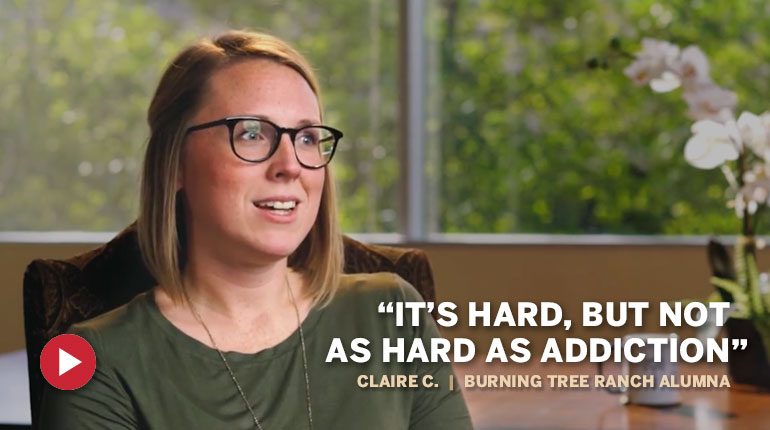Therapies
Dialectical Behavioral Therapy (DBT) for Addiction and Mental Health Treatment
Dialectical Behavioral Therapy (DBT), developed by American psychologist Dr. Marsha Linehan in the 1970s, has proven to be a powerful tool in the treatment of individuals struggling with a combination of chronic addiction and mental health disorders.
As the first form of psychotherapy to formally incorporate mindfulness and acceptance, DBT is highly effective in helping individuals develop emotional regulation skills, reducing the risk of relapse, and improving overall quality of life.
"Under routine mental health care conditions ... outpatient DBT leads to positive results comparable to those reported in other effectiveness studies and in randomized controlled trials."
DBT at Burning Tree Ranch
Burning Tree Ranch is a specialty program dedicated to the treatment of chronic addiction and mental health. Our program is long-term, progress-based, and highly intensive.
DBT takes an interventionist approach by looking at what drives people toward substance use and how these substances are reintroduced as coping mechanisms.
As a chronic relapse facility specializing in the treatment of co-occurring disorders, Burning Tree Ranch prioritizes the incorporation of evidence-based practices such as DBT as a first line of defense against relapse.

What is Dialectical Behavioral Therapy (DBT)?
Dialectical Behavioral Therapy, or DBT, is a comprehensive, evidence-based treatment that combines cognitive-behavioral techniques with mindfulness and acceptance strategies.
DBT theory claims people who are struggling with mental health or substance use disorder suffer from persistent forms of emotional dysregulation. This dysregulation drives their response in stressful situations without sufficient control over how they react emotionally.
One of DBT’s primary functions is to help the subject develop a foundation for emotional regulation. This skill set allows individuals with a substance use disorder to better manage their emotions, thus reducing the propensity for relapse and improving quality of life.

The Four Modules of DBT
Our ranch team utilizes DBT in treatment through four key modules: mindfulness, distress tolerance, emotion regulation, and interpersonal effectiveness.
Mindfulness
This is the first stage of becoming aware. We help our clients grow more attentive to their thoughts, feelings, and behaviors. This is the foundation upon which further skills are applied.
Distress Tolerance
Many of our clients demonstrate a low stress tolerance. This module introduces distress tolerance skills that help our clients better manage their emotional reactions to stress, thus reducing crisis.
Emotional Regulation
Emotions motivate our behaviors. We help our clients accurately and consistently identify their feelings. Upon this foundation, we incorporate new skills that promote a more balanced and productive response to feelings.
Interpersonal Effectiveness
This module addresses social skills and relationships. We help our clients develop the skills to meet their objectives, goals effectively and needs without disrupting relationships.


“In our program, we focus on what clients do rather than what they say because behaviors tell us what they believe is important.”
Meghan Bohlman, LPC, LCDC, EMDR-Trained, Clinical Director
DBT for Addiction Treatment
Individuals who struggle with addiction and emotional dysfunction report higher sensitivity and more immediate reactions to emotional situations. Their reactions are more extreme, making it more difficult to process events cognitively. DBT is, therefore, a cornerstone of our approach to treating substance use disorders.
By helping individuals develop new coping skills and strategies for managing emotions, DBT reduces the propensity for relapse. Our clients learn to identify and tolerate distress without turning to substances and build a strong support network to maintain long-term sobriety.

Developing Life Skills Through DBT
Fundamentally, our clients want to enjoy a life of sobriety. The foundation they build through DBT skills helps them to realize that to achieve their objectives successfully, they will need to adopt new skills.
Some of the life skills we develop through DBT:
- Balancing change and acceptance
- Tolerating distress without the need to escape it
- Regulating emotions healthily rather than using substances to avoid them
- Identifying how to respond to life events instead of using substances as a coping mechanism
- Learning from mistakes rather than self-medicating with substances to prevent discomfort
The resilience and life skills learned through DBT offer numerous benefits for individuals struggling with mental health and addiction. The pressures and stressors of daily life may not change, but learning new skills to live by helps our clients navigate daily life without engaging in destructive behaviors.

Combining DBT with Other Therapies
We recognize that a comprehensive, individualized approach to treatment is essential for yielding the best outcomes. DBT The best treatment outcomes necessitate a comprehensive, individualized treatment approach incorporating multiple evidence-based therapies.
DBT is often combined with other evidence-based therapies, such as Cognitive Behavioral Therapy (CBT) and Eye Movement Desensitization and Reprocessing (EMDR), to address each client’s unique needs. By integrating DBT with other therapies, we create a powerful synergy that enhances the overall effectiveness of treatment.
Explore Other Therapies we Use to Treat Addiction at Burning Tree Ranch
Incorporating DBT in Long-Term Treatment
At Burning Tree Ranch, our treatment team has the time to learn more about how these different forms of emotional dysregulation affect our clients in routine, daily settings.
We invite our clients to observe their emotional reactions as they happen. We then help them to look at these feelings objectively so they do not lead to destructive behaviors. This is the beginning of their experience with awareness and the first step towards improved emotional regulation.
We understand the complex, multi-faceted issues many of our families face when it comes to addiction. The circumstances of long-term residential treatment allow us to create a treatment program unlike anything else in the world.
Our promise to families is to deliver life-changing clinical interventions to those who have been unable to find freedom from the unending cycle of relapse.

